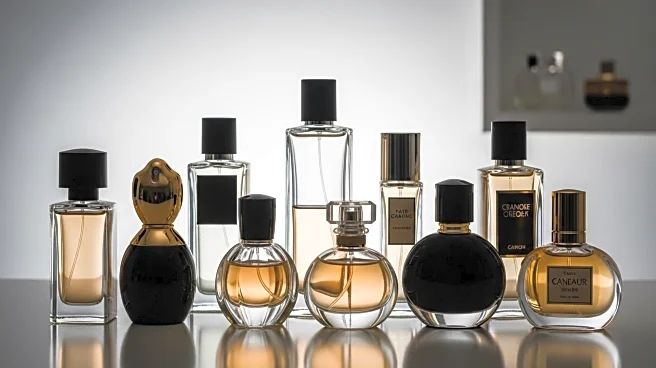What's Happening?
Coty, a major player in the beauty industry, is reportedly considering a strategic sell-off of its Luxury and Consumer divisions. The Luxury division includes high-profile brands such as Gucci, Burberry, Jil Sander, and Hugo Boss, while the Consumer division features mass-market brands like Covergirl, Max Factor, and Rimmel London. Discussions are underway with Interparfums regarding the potential acquisition of certain fragrance brands, notably Burberry and Hugo Boss. Coty has faced financial difficulties, reporting a net loss of $72.1 million in its fourth quarter, with net revenue down 8% year-over-year. The company is also exploring options for its Consumer division in Asia, which has struggled against direct-to-consumer competitors.
Why It's Important?
The potential sell-off of Coty's divisions could significantly impact the beauty industry, particularly in the luxury fragrance sector. If Interparfums acquires brands like Burberry and Hugo Boss, it could reshape market dynamics and influence brand strategies. Coty's financial struggles highlight broader challenges in the beauty industry, where mass-market brands face increasing competition from direct-to-consumer models. The outcome of these strategic moves could affect investors' perceptions and valuations of beauty companies, influencing future mergers and acquisitions in the sector.
What's Next?
Coty's ongoing discussions with Interparfums and other potential buyers will be crucial in determining the future of its Luxury and Consumer divisions. The expiration of the Gucci fragrance license in 2028 adds complexity to Coty's strategic planning, especially given Kering's financial challenges. As Coty navigates these negotiations, stakeholders will be watching for any announcements regarding partnerships or mergers. The company's efforts to find a buyer for its Consumer division in Asia will also be closely monitored, as it seeks to stabilize its financial position.
Beyond the Headlines
The strategic decisions by Coty could have long-term implications for the beauty industry, particularly in terms of brand management and market positioning. The potential shift in ownership of major fragrance licenses may influence consumer perceptions and brand loyalty. Additionally, Coty's financial challenges underscore the importance of adapting to changing market conditions, including the rise of direct-to-consumer brands and evolving consumer preferences.










